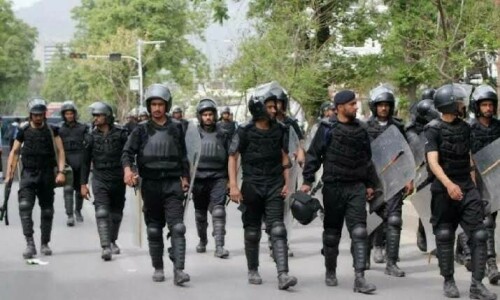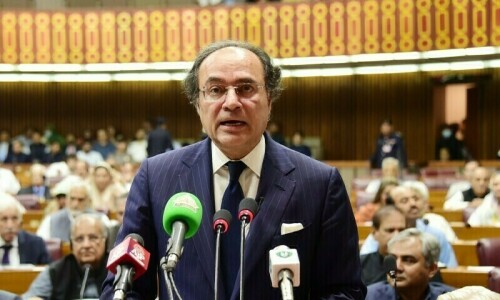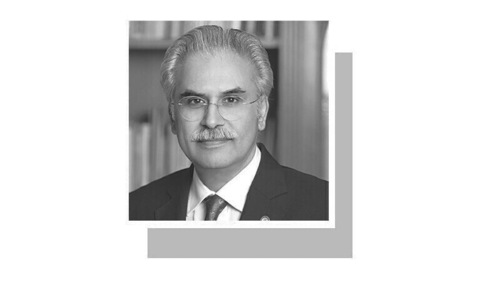ISLAMABAD: The top military brass resolved on Tuesday to continue the fight against terrorism.
The meeting, chaired by Chairman of Joint Chiefs of Staff Committee Gen Khalid Shameem Wynne, was attended by Chief of Army Staff Gen Ashfaq Parvez Kayani, Chief of Naval Staff Admiral Muhammad Asif Sandila, Chief of Air Staff Air Chief Marshal Tahir Rafique Butt, Defence Secretary Lt Gen (retd) Asif Yasin Malik, Chief of General Staff, Director General Joint Staff, Director General of Inter Services Intelligence, Director General of Strategic Plans Division and other senior military officers from the three services.
“It was reiterated in unequivocal terms that comprehensive strategy will be followed by armed forces to combat terrorist threat being faced by the country,” a military spokesman said after a quarterly meeting of the Joint Chiefs of Staff Committee, which is the principal military advisory body.
The policy statement on continuing the fight against terrorism came a day after the Tehrik-i-Taliban Pakistan withdrew its peace talks offer on the pretext of what it (TTP) called the “non-serious attitude of security forces and the government”.
This was probably the first official response from the military since the TTP offered talks in December last year.
The offer for talks was renewed by the TTP on Feb 3 and it named PML-N chief Nawaz Sharif, JUI-F leader Maulana Fazlur Rehman and Jamaat-i-Islami Amir Munawar Hassan as guarantors they would like to have in any peace deal with the government.Two multi-party conferences — one hosted by the Awami National Party and the other by JUI-F — had endorsed a peace process with Taliban except for that the communiqué issued by the conference organised by the ANP called for dialogue within the confines of the Constitution, while the JUI-F meeting wanted unconditional talks.
The PPP government tried in February to convene a meeting of the Defence Committee of the Cabinet, the highest forum for civil-military coordination on national security, but it could not take place due to unavailability of the Chairman of Joint Chiefs of Staff Committee.
A military official explained that by pursuing a comprehensive strategy, the Joint Chiefs of Staff Committee meant to say that all elements of national power would be utilised to combat and root out terrorism from the country.
The military had been keeping an ambivalent position on the TTP’s dialogue offer.
The army, which traditionally keeps itself in lead role in decisions relating to security, had on the issue of dialogue with the Taliban put the ball in the court of the civilian government for a decision.
It was apparently because the military was always sceptical about the TTP’s offer.
The TTP and other militant groups continued to carry out attacks despite their offer for peace. The latest attack was outside a judicial complex in Peshawar which left four people dead.
The rising tide of extremism and sectarian violence has made the situation further complex.
Gen Wynne praised sacrifices rendered by armed forces for the sake of national security and expressed satisfaction at the state of preparedness of armed forces to take on the challenge.
The meeting also discussed and reiterated support of the armed forces to Election Commission of Pakistan in the forthcoming elections.












































